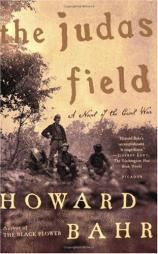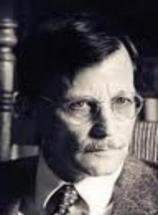The Judas Field: A Novel of the Civil War
Review
The Judas Field: A Novel of the Civil War
It was Robert E. Lee who once said, "What a cruel thing is war. To separate and destroy families and friends, and mar the purest joys and happiness God has granted us in this world, to fill our hearts with hatred instead of love for our neighbors, and to devastate the fair face of this beautiful world." With THE JUDAS FIELD, Howard Bahr gives us a stirring and emotional account of just such a time, as seen through the eyes of young Mississippian Cass Wakefield.
THE JUDAS FIELD opens with the birth of Cass Wakefield and tells of how he was almost accidentally thrown away with the dirty linens. From then on his life becomes a series of misfortunes, beginning with the return of the dead from the Mexican War, which included his father and uncle, and then the death of his mother from fever. From there, the novel jumps forward in time to Christmas 1884.
Alison Sansing is dying. Not wanting to be the only member of her family buried in a large pre-purchased plot in the cemetery, she asks Cass if he would do her a favor. Cass had fought with her father and brother during the Civil War, and had buried them following the Battle of Franklin. What she wants is for Cass to take her there and retrieve their bodies so they can be placed in their home soil. Cass agrees to do it, and in doing so opens a flood of memories that could very well cripple him.
Visions and memories of the War come at almost every turn --- images Cass wishes he could forget but knows he never can. Lucian Wakefield, an orphan who joined his regiment and was put in his charge, follows Cass and Alison despite orders to stay home. Plagued by headaches, Lucian is driven to help Cass and Alison, and is forced to confront his own demons as well.
Bahr presents his battles as violent and as gruesome as they were. They are chaotic and loud and swirling on the page. In honesty, this is necessary, for it puts the reader in the mind and the memory of Cass and Lucian as they endure the savagery of what it is they had to do and what they witnessed along the way. To do any less would weaken the effect of these memories, and though it is violent and brutal, Bahr writes with such honesty and artistry that it never seems gratuitous. His presentation of the horror of the battle at Franklin is enough to make readers sit up and shake their heads, knowing that even in this work of fiction, it is a true fact of our history and that such a grievous event occurred.
Between these reminiscences of killing, Bahr also focuses on how these moments forever change and shape the men who fought, Cass and Lucian in particular. They may look to be the same people they always were, but, deep inside, that person they had been had died. His insight and understanding of these moments is well presented in this passage:
"Once, in the back of the store, he took an old clock apart, laid out the wheels and gears and springs, cleaned and studied them, and put them back in the same order. Sitting on the workbench, the thing looked just like the clock it had been, except that it would not run. Nothing Lucian did would induce it to run. That was what the war did to people."
Of equal import are the crises of faith and the exploration of belief amongst the various soldiers. Keeping one's belief in the design of the Almighty is a tough one in the face of so much slaughter, and Cass feels that any plan God has isn't all that great, considering what he's seen.
His friend Roger, on the other hand, continues to hold his faith and tells Lucian that one must always pray for forgiveness. But Lucian struggles to understand why God just can't fix the problems if He can see them. All the while Bahr intertwines the knowledge that God can choose no side, North or South, even as men from both sides pray for protection, because all are his creation, and their deaths at each other's hands sadden him at an unimaginable level.
THE JUDAS FIELD is a book that will shock you with its brutal honesty and then move you with its simple sincerity. There is light and dark throughout, and both sides are given their due. In the end, it is a beautifully written examination of the effects of war and man's struggle to find redemption and peace within himself after the last shot has been fired.
Reviewed by Stephen Hubbard on January 22, 2011
The Judas Field: A Novel of the Civil War
- Publication Date: July 24, 2007
- Genres: Fiction, Historical Fiction
- Paperback: 304 pages
- Publisher: Picador
- ISBN-10: 0312426933
- ISBN-13: 9780312426934



